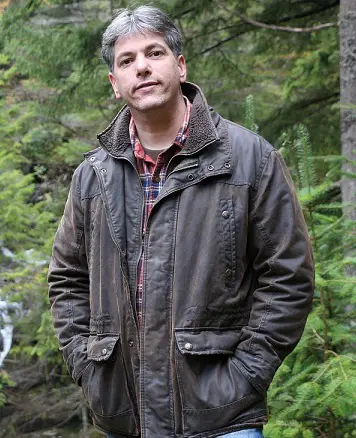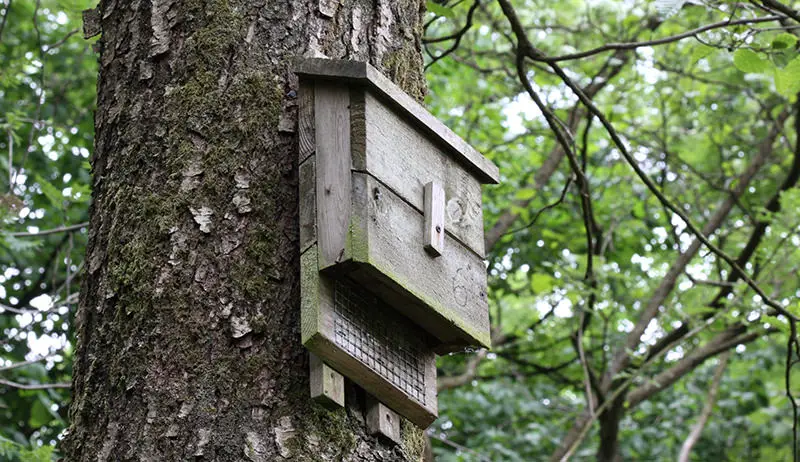No, it is not possible to survive off the grid without any money. Living off the grid requires an investment for land, building structures, water supply, and energy sources, which all come with a cost.
However, there are ways to minimize financial expenses when going off the grid, such as building simple structures using natural and recycled materials, cultivating your own food, and relying on renewable energy sources such as solar or wind power. Going off the grid also requires self-sufficiency skills and knowledge, such as water and food preservation techniques, basic construction, and alternative energy maintenance.
Despite the challenges, many people have successfully left mainstream society and lived off the grid with minimal financial means.

Credit: www.offthegridnews.com
Generating Resources
Living off the grid with no money is a challenge, but it is not impossible. To survive the off-grid lifestyle, you need to learn how to generate resources for yourself. This means finding ways to live off the land and fulfilling your basic needs without any outside help.
Let’s explore some key points that can help you generate resources and make your off-grid lifestyle more comfortable and sustainable.
Finding A Suitable Location To Live Off The Grid
Before you can live off the grid, you need to find a suitable location to live. Look for an area that is isolated, has access to water, and plenty of sunlight. Ideally, it should also have fertile land for growing crops and building materials for shelter.
You can search for free land or contact a landowner if you do not own any property. But make sure that you have permission to occupy the land and check the legal requirements for living off the grid, such as zoning laws and building codes.
Collecting And Storing Rainwater For Drinking And Cooking
Water is critical for survival, and collecting rainwater is an efficient way to obtain it. Build a water catchment system that can capture rainwater from your roof, store it in tanks or barrels, and filter it before drinking. Make sure that your system can collect enough water to meet your daily needs, and that your storage containers are clean and safe for storing drinking water.
You can also reuse greywater for irrigation or washing clothes.
Growing A Vegetable Garden And Preserving Food
Growing your vegetable garden is vital for self-sufficiency, as it provides you with fresh produce and saves you money. Choose crops that are easy to grow in your climate and soil, and learn about composting and soil management. If you have surplus crops, you can preserve them by canning, dehydrating, or freezing them to extend their shelf life.
This gives you access to food even during the offseason when fresh produce is scarce.
Hunting, Fishing, And Foraging For Food
Hunting, fishing, and foraging are good ways to supplement your diet and provide you with a variety of protein sources. Learn about local wildlife, seasons, and regulations before hunting or fishing. Foraging for wild berries, mushrooms, or nuts can also provide additional nutrients and contribute to a diverse diet.
Collecting And Chopping Firewood For Heating And Cooking
Off-grid living also requires a reliable heating and cooking source, and firewood is a great option if you have trees on your property. Learn how to collect, chop, and store firewood properly to ensure it stays dry and burns efficiently.
Make sure you follow safety procedures to prevent injuries and equipment damage.
Generating resources is a crucial aspect of living off the grid with no money. Finding a suitable location to live, collecting and storing rainwater, growing a vegetable garden and preserving food, hunting, fishing, and foraging for food, and collecting and chopping firewood are some of the ways you can create a sustainable off-grid lifestyle.
With careful planning and hard work, you can thrive off the grid and be self-sufficient.
Building And Maintaining Shelter
Can You Survive Off The Grid With No Money?
Living off the grid is a challenge, especially if you have no money to spare. It might seem impossible, but with some creative thinking, it’s achievable. One of the most crucial steps in building a successful off-grid life is to construct a shelter that is durable and right for you.
Here’s what you need to know about building and maintaining a shelter off the grid.
Choosing The Right Type Of Off-Grid Shelter
When selecting a shelter, you must consider your environment and living conditions.
- Location: Determine the best position for your shelter depending on environmental factors like sunlight, wind direction, and the slope of the land.
- Natural resources: Consider the available resources for your shelter, like sources of water, building materials and fuel, and availability of food.
- Local building codes: Bear in mind that you might be obliged to comply with local building codes for safety reasons.
Building A Shelter Without Money
It’s possible to build an off-grid shelter for free if you have an ample supply of natural materials like timber, rocks, and clay.
- Cob: Cob structures are made of sand, clay, and straw mixed into a thick paste. Cob structures are long-lasting, sturdy, and energy-efficient.
- Earthbag: This method uses bags loaded with dirt, sand, or gravel. Buildings made using earthbags are affordable, eco-friendly, and quick to build.
- Timber: Timber structures are easy to construct if you have access to trees. You’ll just have to cut down trees, strip off the bark, and trim them to size.
Maintaining And Repairing The Shelter
Once you’ve built your shelter, properly maintaining and repairing it is necessary.
- Check for damage: Examine your shelter for any cracks, leaks, or structural damage regularly.
- Use natural products: Using natural or eco-friendly products to deal with wear and tear on your shelter helps save money and protects the environment.
- Learn basic building skills: Knowing how to handle straightforward fixes, like roof patching, leaky windows and gaps in the wall, can enable you to repair the shelter all by yourself.
Living off-grid without money is achievable; it just takes careful planning and a willingness to get resourceful. By building a shelter that is suitable to your needs and maintaining it the right way, you’re well on your way to a comfortable and self-sufficient life.
Off-Grid Energy
Living off the grid with no money is a massive challenge. However, it’s not impossible, and people are doing it all over the world. Central to your success in a self-reliant lifestyle is the ability to generate energy that provides the necessary power for your everyday life.
Importance Of Energy When Living Off The Grid
Living off-grid means you’re entirely dependent on your own resources for power. It’s crucial to have an alternative source of energy when you’re not connected to the grid.
- Provides power for basic needs: Generating energy is necessary to power your daily activities like cooking, laundry, heating, and lighting.
- Ensures comfort: Having adequate energy sources provides a comfortable environment, particularly during the winter months.
- Safety: Energy sources like solar, wind, and alternative fuels for cooking and heating alleviate the need to work with combustible fuels, such as propane, that pose an explosion risk.
Harnessing Solar And Wind Power
The two most popular energy options for living off the grid are solar and wind power.
- Solar power: It’s one of the most accessible energy sources in the world. The cost of installing solar panels has dropped significantly in recent years, making it more affordable for people living off the grid. Assume proper positioning of panels with adequate sunshine, and you can generate solar energy even on cloudy days.
- Wind power: Wind turbines generate energy by harnessing wind power. Wind power is abundant, especially in coastal and open prairie areas. It’s also worth mentioning that wind turbines cost far less than they used to, making them a viable option.
Ways To Live Without Electricity
If you’re going to survive off the grid with no money, you need to find ways to live without electricity.
- Campfire cooking: Cooking with wood over an open flame is the classic off-grid method for cooking. It’s also your simplest and most cost-effective cooking option.
- Handwashing: If you don’t have access to electricity for a washing machine, then handwashing is a viable alternative.
- Oil lamps: Replace your electric lights with oil lamps. They offer an alternative source of light in the dark. They’re also an affordable lighting option.
- Composting toilet: Waterless toilets are an excellent option for those living off the grid without electricity. They don’t require any electricity and are easy to maintain.
Alternative Fuel Sources For Cooking And Heating
Living off the grid means you’re not tied to conventional energy sources for cooking and heating.
- Wood: Wood is an excellent fuel source for cooking and heating. You can use it for campfire cooking, heating your living area and boiling water for drinking. Ensure you have enough wood to last through the winter months.
- Propane: Propane is practical for those who live in colder climates. It provides heat in the winter, and you can cook food using propane stoves. Propane tanks can last for a few months.
Living off the grid with no money is a daunting task. But with careful planning, it’s possible to generate energy and live without electricity. Remember that conserving energy is paramount in a self-reliant lifestyle to ensure comfort, safety and bring down costs.
Surviving Off The Grid With Community Support
Living off the grid is a dream for many people seeking to live a self-sustaining lifestyle. But, can you survive off the grid with no money? Living off the grid does not necessarily mean you have to live in isolation.
With a supportive community, it is possible to become self-sufficient, without spending any money. In this section, we will explore the importance of having a supportive community when living off the grid, ways to seek assistance and resources from community members, and sharing resources and skills with other off-gridders.
The Importance Of Having A Supportive Community When Living Off The Grid
Living off the grid can be a challenging and lonely experience without the right support system. Having a community of like-minded individuals can provide a sense of belonging, build strong relationships and offer a range of benefits.
- Emotional support: Living off the grid is not an easy lifestyle, and it can be emotionally draining. With a supportive community, you can share your experience, feelings, and challenges, knowing that someone is there to listen and offer a helping hand.
- Shared resources: Being part of a community means that resources, skills, and knowledge can be shared and utilized, without necessarily spending money.
- Safety and security: When living off the grid, security is crucial. Having a supportive community means being able to rely on each other in times of danger, emergencies and accidents.
- Sense of purpose: Living off the grid can be a rewarding experience, but it can also lead to feelings of isolation. Being part of a supportive community can provide a sense of purpose, and motivation to continue living the off-grid lifestyle.
Ways To Seek Assistance And Resources From Community Members
Living off the grid requires a level of self-sufficiency, but there may be times when you need assistance from your community to accomplish certain tasks.
- Identify community members with expertise: Reach out to community members with specific knowledge or skills that you might need, whether it’s building, farming or hunting.
- Bartering: The concept of bartering allows you to exchange goods or services with other community members without spending any money.
- Participation in community projects: Joining community projects can provide opportunities to learn new skills while contributing to the community.
Sharing Resources And Skills With Other Off-Gridders
Living off the grid is about sharing skills and resources to ensure self-sustainability.
- Organize skill-sharing sessions: Pool resources with other community members and organize skill-sharing sessions where everyone can learn new skills.
- Start a community library: Create a community library where books, dvds, and other resources can be shared for free.
- Plan and share: Work with other off-gridders to plan and share the knowledge of seasonal crop planting and harvesting.
Living off the grid involves a sense of community and shared values. When living off the grid, having a strong community is important to one’s survival and well-being. With the right support, sense of purpose, and skills-sharing, it is possible to live a self-sufficient lifestyle without spending any money.
Frequently Asked Questions On Can You Survive Off The Grid With No Money?
Can You Live Off The Grid With No Money?
Yes, it’s possible with some effort, including building shelter, growing food, using alternative energy sources, and finding ways to earn money off-the-grid.
How Can I Live Off The Grid For Free?
With minimal expenses, including collecting rainwater, using solar panels, growing your food, and using gravity to generate electricity, it’s possible to live off the grid for free.
What Are The Challenges Of Living Off The Grid?
Living off the grid has its benefits but also comes with challenges such as finding food, water, shelter, and dealing with unforeseen emergencies.
What Are The Benefits Of Living Off The Grid?
Living off the grid promotes self-sufficiency, reduces dependency on the grid, conserves natural resources, provides fresh air, and promotes a more frugal lifestyle.
What Skills Do I Need To Live Off The Grid?
Some essential skills for living off the grid include hunting and fishing, agriculture, construction, off-grid energy, and basic survival skills.
Conclusion
Living off the grid with no money may seem like a daunting task, but it’s not impossible. By harnessing the resources around you, such as subsistence fishing, hunting, and farming, you can provide for your basic needs. You can also generate your own energy through solar panels and wind turbines to power your home.
Bartering, trading, and participating in local sharing economies can help you acquire goods and services that you cannot provide for yourself. However, surviving off the grid with no money requires a high level of self-sufficiency, resourcefulness, and resilience. You need to be prepared to deal with the challenges that come with living in isolation.
With careful planning, hard work, and determination, living off the grid can be a fulfilling and sustainable way of life. It allows you to connect with nature, embrace a simpler lifestyle, and reduce your impact on the environment. So, if you’re up for the challenge, go for it! It might just be the best decision you ever make.

“My name is Leo Jacob, and I hold a Bachelor of Science degree with Honors in Applied Environmental Science and Sustainability from the University of the West of Scotland. Since childhood, I’ve been passionate about living an eco-friendly life. After completing my studies, I dedicated myself to finding simple ways to lead a more environmentally conscious lifestyle. I launched ecolifely.com to share my educational background and practical experiences with everyone, hoping to inspire others to join me in creating a greener, more sustainable world.”








